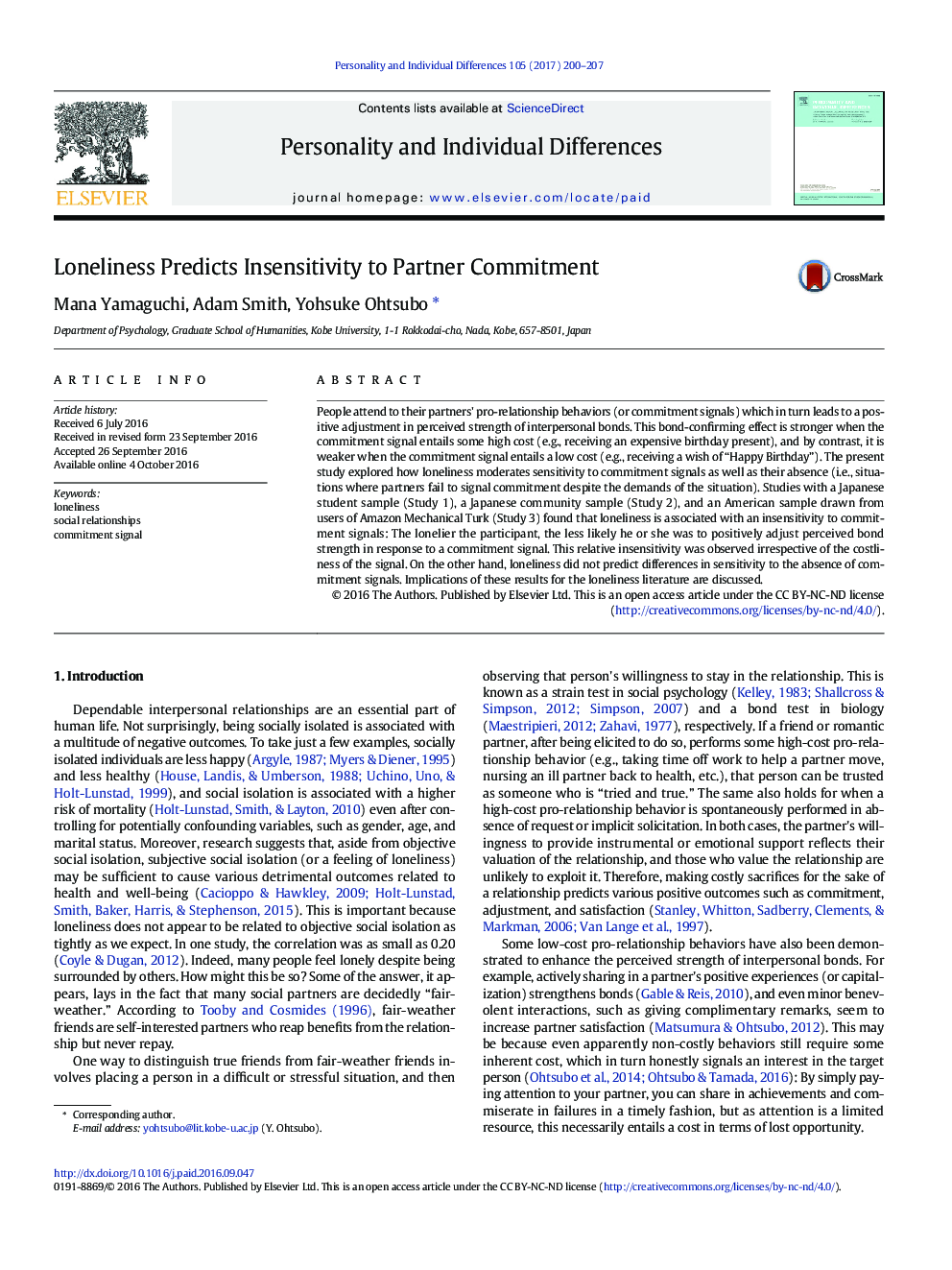| کد مقاله | کد نشریه | سال انتشار | مقاله انگلیسی | نسخه تمام متن |
|---|---|---|---|---|
| 5036048 | 1472013 | 2017 | 8 صفحه PDF | دانلود رایگان |
- Partner commitment signals up-regulate the perceived strength of the bond.
- Loneliness predicts insensitivity to partners' commitment signals.
- Partners' signal failures down-regulate the perceived strength of the bond.
- Loneliness does not predict negative responses to commitment signal failures.
People attend to their partners' pro-relationship behaviors (or commitment signals) which in turn leads to a positive adjustment in perceived strength of interpersonal bonds. This bond-confirming effect is stronger when the commitment signal entails some high cost (e.g., receiving an expensive birthday present), and by contrast, it is weaker when the commitment signal entails a low cost (e.g., receiving a wish of “Happy Birthday”). The present study explored how loneliness moderates sensitivity to commitment signals as well as their absence (i.e., situations where partners fail to signal commitment despite the demands of the situation). Studies with a Japanese student sample (Study 1), a Japanese community sample (Study 2), and an American sample drawn from users of Amazon Mechanical Turk (Study 3) found that loneliness is associated with an insensitivity to commitment signals: The lonelier the participant, the less likely he or she was to positively adjust perceived bond strength in response to a commitment signal. This relative insensitivity was observed irrespective of the costliness of the signal. On the other hand, loneliness did not predict differences in sensitivity to the absence of commitment signals. Implications of these results for the loneliness literature are discussed.
Journal: Personality and Individual Differences - Volume 105, 15 January 2017, Pages 200-207
